Are you an artichoke farmer struggling with ant infestations on your plants? Or perhaps a curious gardener observing ants on artichoke plants?
Ant colonies can be a problem for artichoke plants because they farm sap-feeding pests such as aphids.
The main one you should worry about is getting rid of aphids, which suck the sap from artichoke plants and release honeydew.
Ants find honeydew irresistible and they will always be attracted to this sweet, sticky substance. This is what attracts ant colonies to plants, and it’s the main reason why you might see them all over your artichokes.
Despite this, ants can also be beneficial. They are part of the ecosystem for a reason because they help in keeping its balance by consuming other harmful insects that can damage your plants. They also aid in soil aeration.
When an alarming ant population is present in your artichoke plants, check if there are adult aphids first before trying to kill them off. In most cases, they are only staying there because they have found a food source.
The few that remain can then help you to control pests and to improve the soil.
- Related article: Ants in Plants
In this article, we will explore the fascinating relationship between ants and artichoke plants, and how their interaction can affect the growth and health of the plant.
Are Ants on Artichoke Plants a Problem?
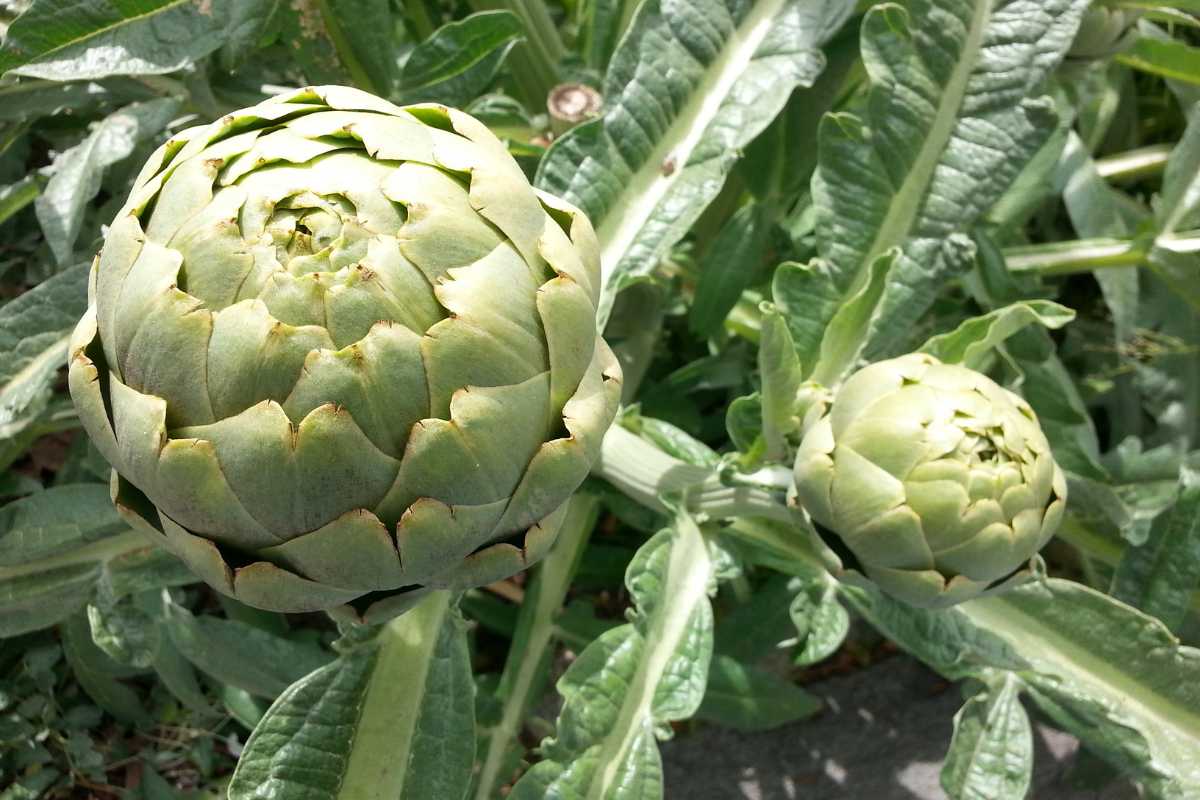
The main problem ants cause to artichoke plants is that they encourage the presence of an aphid population to thrive.
As they are an invaluable source of food for them, ants protect them from predators and even move them to safer locations.
Two of the most common aphid species that infest artichokes are Black Bean Aphids and Oleander-Thistle Aphids.
The first is the most widespread and it can also feed on onions, fava beans, and thistles.
Oleander-thistle Aphids, on the other hand, mainly infest artichokes and their close relatives.
Many times, the damage caused by these aphids is not visible, but their presence can be determined thanks to the sticky honeydew residues that accumulate on the leaves.
Leftover honeydew often attracts black, sooty mold colonies that can grow so much that it interferes with photosynthesis, affecting the growth of plants and plant hardiness.
Another species of aphid that attacks artichokes is the Leaf-feeding Artichoke Aphid, which is more easily identifiable as it causes yellowing of the leaves and stunted growth of the infected plants.
Will Ants Eat Artichoke Plants?
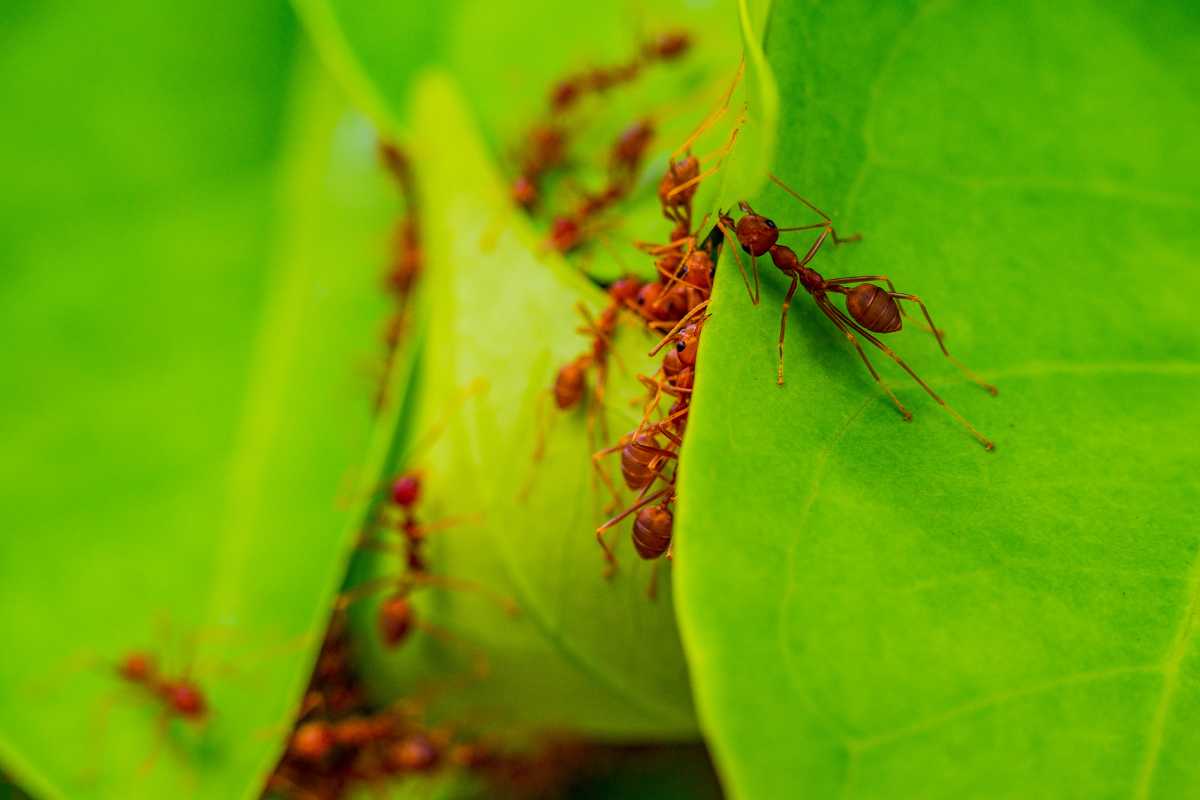
Ants have never been reported to feed on artichoke plants as these thistles are much too tough for ants to be able to chew on them.
In fact, ants rarely eat live plants, as they are unable to digest fiber, much like us.
The only exception is Red Fire Ants, which can sometimes be an issue for certain plants, as they munch on tender shoots and buds. However, they won’t bother your artichoke plants.
If you see ants on ruined artichokes, don’t be in a hurry to blame them for the damage. It’s much more likely that they have been merely attracted by other pests, probably aphids.
Ants also feed on dead or rotten plant parts, so if your plants are already damaged, ants might just take advantage.
How Can Ants Help Artichoke Plants?
You might have a hard time believing it, but ants can be very helpful for artichoke plants, and the garden in general. They are regarded as beneficial insects, along with others such as bees and ladybugs.
Some farmers also introduce them among their crops, if they aren’t naturally present, mainly to help control pests.
They also have other benefits, and the following are the main ones:
1. Pest Control
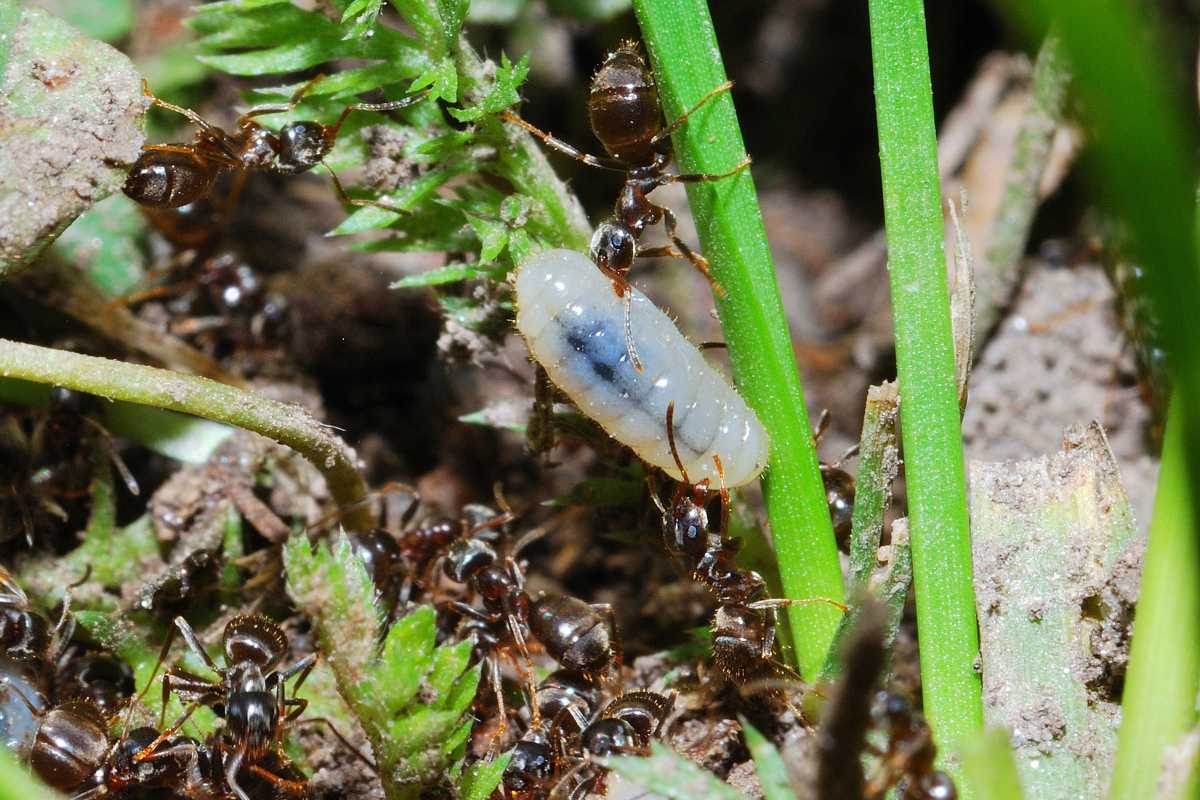
Ants are excellent for biological pest control and are sometimes used as part of an integrated pest management approach.
Their main value is that they feed on a variety of garden pests, of which they eat eggs and larvae. This way, they help to reduce the number of damaging pests before they have even started harming your plants.
2. Soil Improvement
Ants can be an asset for the health of the soil. To build their nests, they create galleries in the soil which help to aerate it.
Oxygen and water can then reach plants’ roots much more easily.
3. Decomposition
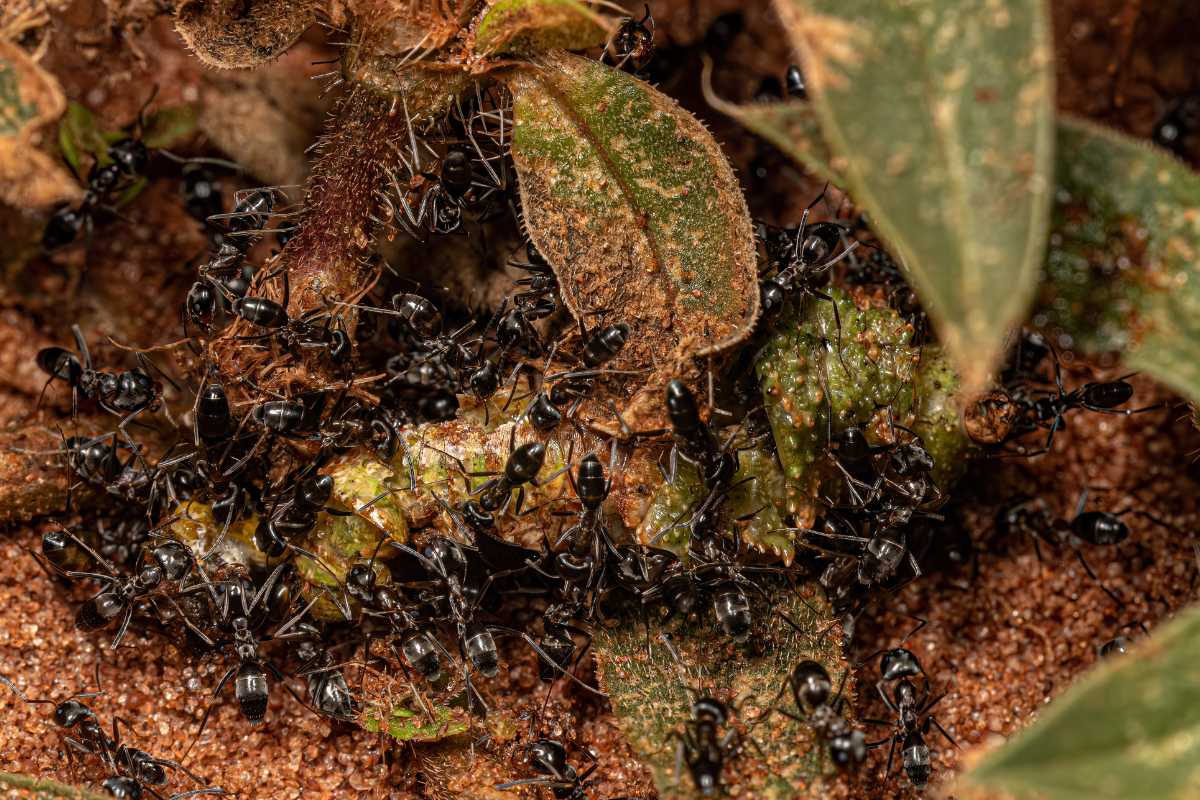
Ants are some of the most important insects for the decomposition of organic waste. They break down dead material to bring to their nest, leaving it wide open for microorganisms to finish the job.
A thriving population of ants is vital to ensure that dead plants or animals don’t accumulate in the garden.
Best Ways to Keep Ants Away from Artichoke Plants
As ants are mainly attracted to artichokes because of aphids, dealing with them is the smartest way of getting rid of most ants.
You will want to avoid killing all of the ants, especially with dangerous synthetic pesticides, as ants aren’t harmful to your plants.
There are many ways to fight the spread of aphids, starting with prevention. We will also cover ways of keeping ants away, which you might want to use while you take care of the aphid infestation.
1. Increase the Strength of Your Artichokes
A healthy plant will have an easier time fighting off predators and resisting an attack.
Artichoke buds contain high levels of antioxidants and other nutrients that help strengthen the plant and make it more resistant to pests, diseases, and environmental stress.
You can help your artichokes by placing a layer of worm castings around the plant. This will provide them with important nutrients that will make them stronger.
2. Use Aphid Enemies
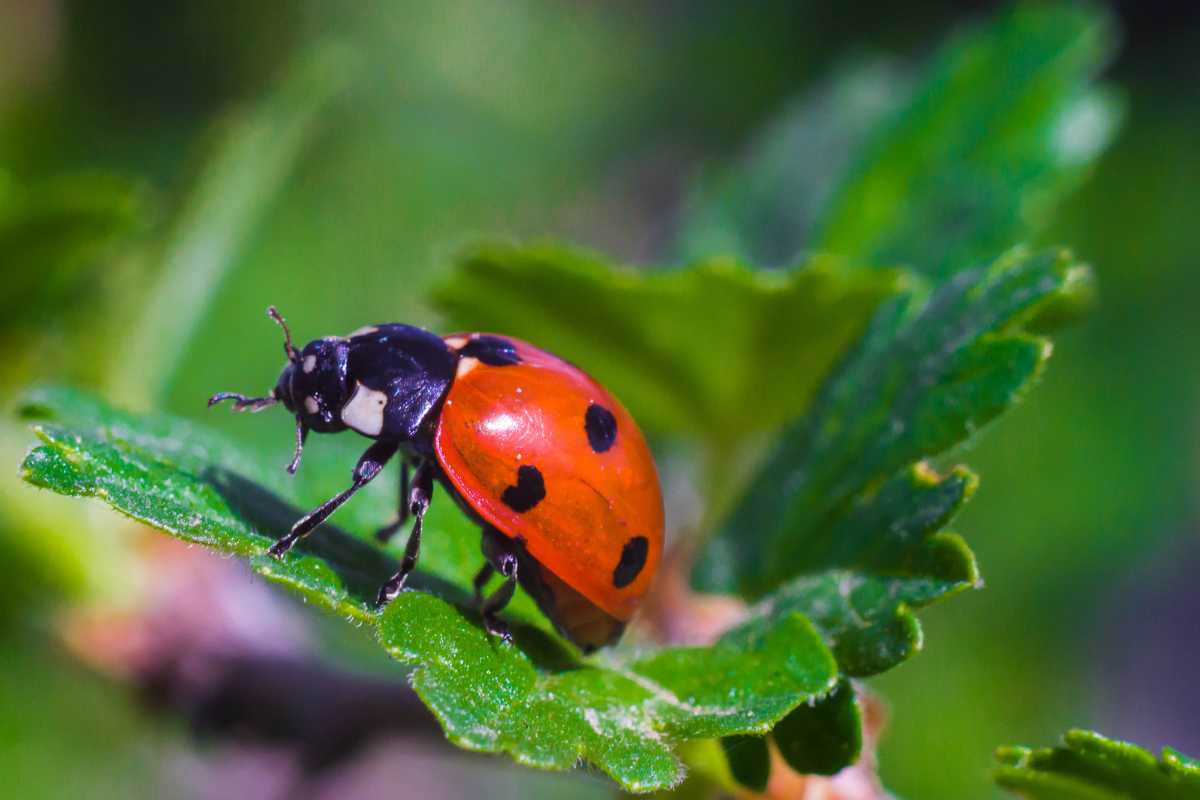
Fortunately, there are a lot of aphid predators. The most common ones are ladybugs, green and brown lacewings, and parasitic wasps.
When you have a healthy garden environment, they will naturally come and get rid of aphids for you. Put pesticides at the end of your list and try organic solutions first.
You can also try increasing your garden’s biodiversity by planting species they love, such as Parsley, Sunflower, Cosmos, Coreopsis, Yarrow, Tansy, Sweet Alyssum, Rose Campion, and Lemon Balm.
You could also purchase beneficial insects and release them in your garden. To avoid causing issues to the local insect population, take care of introducing species that are native to your area.
3. Blast Aphids Off
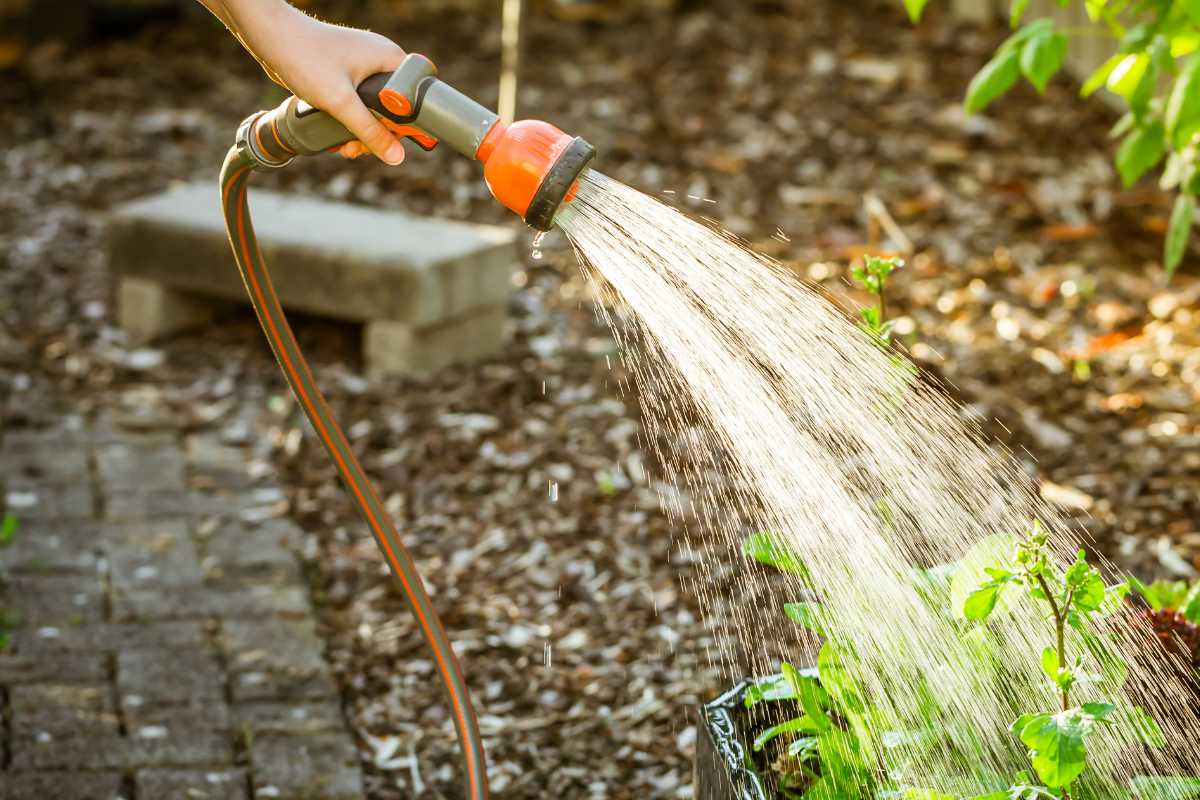
Give your plants a blast of water to easily dislodge aphids and aphid eggs.
You can do this by using a hose or a spray bottle. Aphids are slow movers and they will die before they are even able to go back to your artichoke plant. This method also gets rid of ants but they move faster and can come back easier.
However, they won’t be staying there if the aphids are no longer present.
4. Deter Aphids
Aphids love dark places and gather on the artichoke leaf undersides. You can keep them away from your plants by placing tin foil under your artichokes to reflect the light.
5. Kill Aphids
The best way to ensure you won’t have an ant problem is to kill aphids. If they aren’t too many, you can crush them by hand.
Otherwise, you can spray them with neem oil or with insecticidal soap once a week until the infestation is under control. Once the aphids are gone, ants and sooty mold will also disappear.
6. Repel Ants
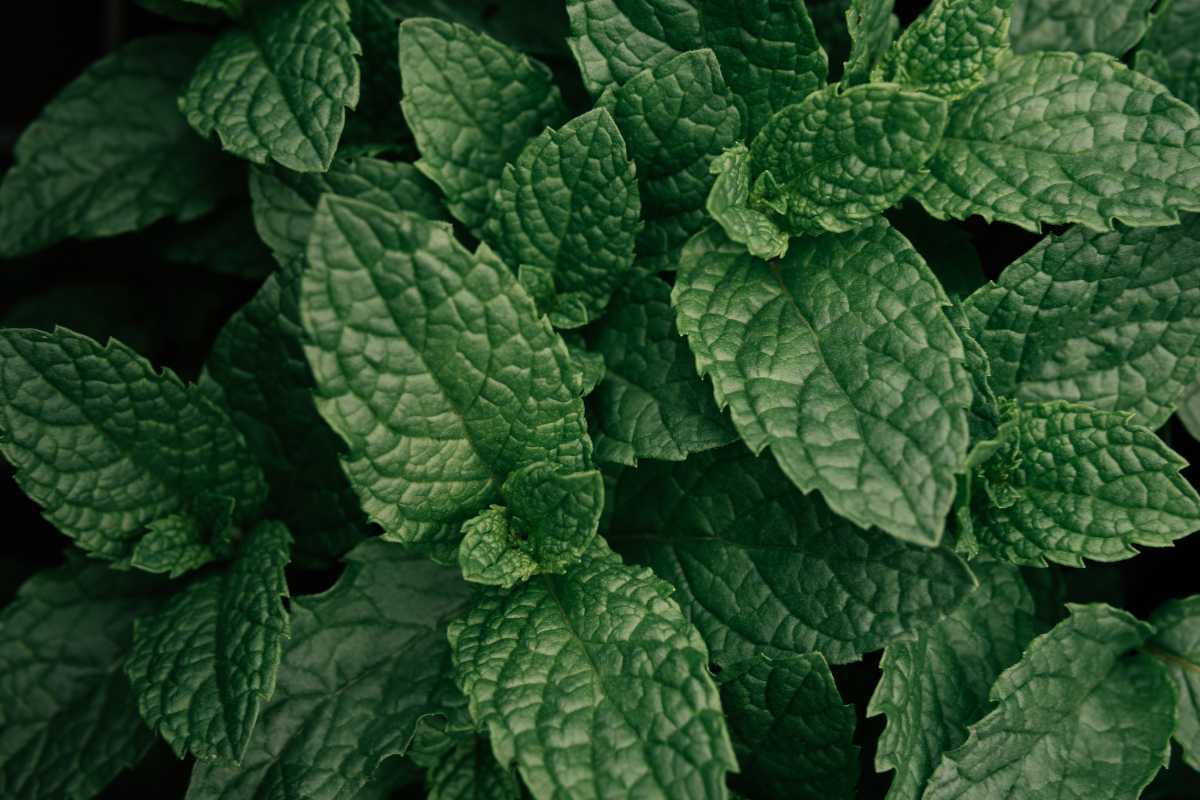
While you take care of aphids, you can deter ants from coming near your artichokes to help out aphids.
Ants hate the smell of cinnamon, curry, and pepper, so sprinkling these spices around your plants will keep them away.
You will need to reapply them often as they will get easily washed away by rain or swept off.
You can also plant the following plants in your garden to drive them off:
- Peppermint
- Rosemary
- Thyme
- Lavender
- Tansy
- Pennyroyal
- Common Yarrow
- Garlic
By planting some of these species among your artichokes, you are sure to keep ants at bay.
Learn more about Plants That Keep Ants Away.
Final Thoughts on Ants on Artichoke Plants
Ants can have a complex and important relationship with your healthy artichoke plants.
While they may initially seem like pests that can harm the plant, they can also provide important benefits such as controlling harmful pests and increased pollination.
Understanding and managing this relationship can lead to better yields and healthier artichoke crops.
Ants play a very interesting and important role in the environment and having them is not a problem until it turns into an ant infestation.
Learn to observe their behavior and keep your garden free from possible ant food sources so you can better manage their population.
If you want to know more about ants on artichoke plants, take a look at these articles:
- Do Ants Eat Corn Plants
- Do Ants Hurt Potato Plants
- Do Ants Eat Bean Plants
- Are Ants Bad for Strawberry Plants
- Are Ants Good for Tomato Plants
Sources:

